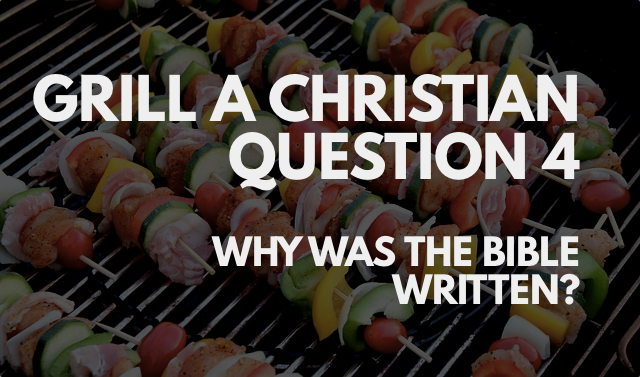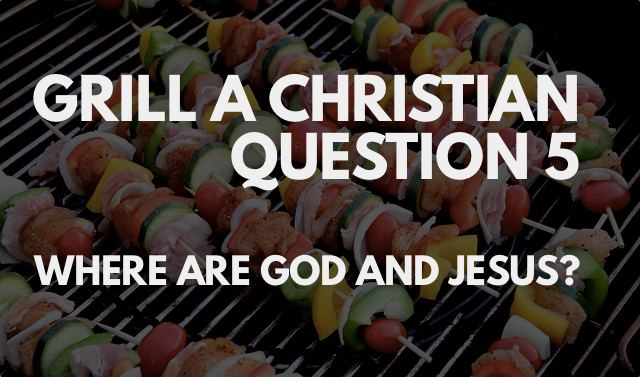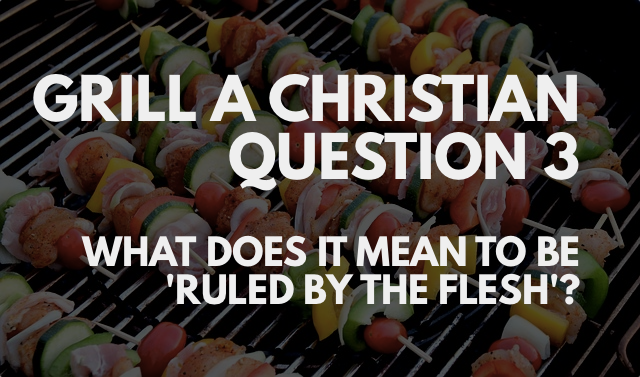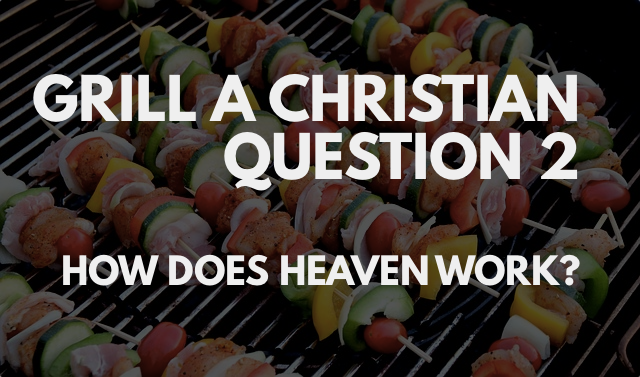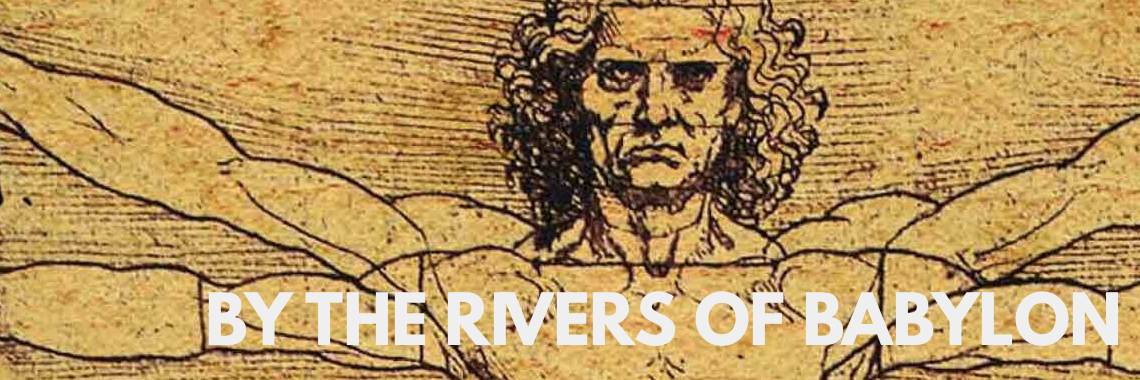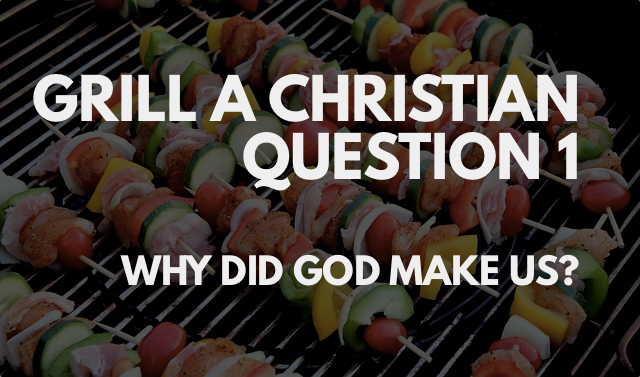I’ve been asked to speak at an upcoming event on women’s ministry in our denomination with a couple of women from church, one of whom is my colleague, the other is my wife. They are both smart and pretty well thought out on this stuff, but I’m still trying to wrap my head around all this gender stuff in the church, and the world.
So here’s my attempt to articulate something like my framework for thinking through how men and women relate in the church, and what ‘gender roles’ look like. The TL:DR; version is pretty much that I think men and women are equal and different, and that this comes together, ideally, in a way that allows us to bear the image of God, as we see him in Jesus, through our relating.
1. Any attempt to define things about our humanity, including gender, must start with understanding God.
Before we get to what maleness and femaleness mean for Christians we need to look at who makes humans and why. In philosophical buzzspeak any ‘theological anthropology’ (an account of what it means to be human) rightly begins with God. This is especially true because humans are made in the image of God, and it takes both genders working in harmony for us to even begin being anything like the God of the Bible, who is three persons eternally in perfect, loving, harmony where difference (three) and unity (one) are twin poles of who God is. This isn’t to say we should shatter the creator/creature divide. But the Bible starts with the definitive claim that we are made in God’s image, which means we should look to who God is as we figure out such fundamental questions of who we are.
Then God said, “Let us make mankind in our image, in our likeness, so that they may rule over the fish in the sea and the birds in the sky, over the livestock and all the wild animals, and over all the creatures that move along the ground.”
So God created mankind in his own image,
in the image of God he created them;
male and female he created them. — Genesis 1:26-27
One of the other distinctive parts of this claim is that the God who speaks is plural. God is an ‘us’…
2. The Triune God models difference, equality, and voluntary submission without a loss of that equality
The last clause of this heading is one that is contested by theologians. There are plenty of people who think that any submission, voluntary or otherwise, is indicative of inequality. But I, frankly, disagree. I do think the voluntary part of the equation is incredibly, incredibly, important. And our attempts to define gender relationships within the church often don’t feel all that voluntary, and sometimes watching men and women (perhaps especially married couples) relate in churches, especially where the woman is obviously gifted, feels a bit like watching someone with Stockholm Syndrome. I think people exercising their God-given gifts for the sake of the body is pretty essential to human flourishing, but, paradoxically, choosing not to exercise those gifts in a particular way, or context, voluntarily, can also be an act of self-giving love, to wit:
In your relationships with one another, have the same mindset as Christ Jesus:
Who, being in very nature God,
did not consider equality with God something to be used to his own advantage;
rather, he made himself nothing
by taking the very nature of a servant,
being made in human likeness.
And being found in appearance as a man,
he humbled himself
by becoming obedient to death—
even death on a cross! — Philippians 2:5-8
Some argue that Jesus only submits to the father during the incarnation. And that’s fine. I think if we, the church, are the ‘body of Christ’ now, we should probably be modelling our human relationships on this example, like Philippians 2 suggests, and I also believe there’s an utter eternal consistency between who God is within the Trinity in an eternal sense, and who God is as the persons of God operate in creation and human history. But what’s important is that you can’t undermine the equality of the persons of the Trinity, nor their difference, without straying into fairly major problems, and while the persons of the Trinity have very distinct roles in their interactions with the world, they act according to the same unified purpose, and they’re always present in one another’s actions. The fancy Greek word for this is perichoresis. They are eternally interpenetrating. This is the union/relationship from which all their creative and loving acts flow. And we are one of those creative and loving acts, but we carry the imprint of that within our being and purpose.
There’s a degree of the paradoxical to all this. Which is important to remember…
3. Men and women are different and equal
Because here’s another one that has often, I think, been poorly expressed. Plenty of Christians focus on the ‘different’, plenty on the ‘equal’, many on the relationship whether its ‘equal but different’ or ‘different but equal’… but wherever you put the ‘but’ you’re essentially indicating a preference or priority in a tribal understanding of the relationship between these two paradoxical poles. I’m going with the ‘and’, because like G.K Chesterton, and many others before and after him, I think we run into massive troubles when we kill paradoxes.
“Christianity got over the difficulty of combining furious opposites, by keeping them both, and keeping them both furious”
One of my fears on gender stuff is we’ve either decided there is no paradox, or kept one more furiously than the other. I think the richness of the image of God we bear in the world depends on our ability to live together, navigating this paradox together. And this richness, and thus the image bearing, is threatened when we follow broken patterns of human relationships (see below), and part of that brokenness is an attempt to deny difference, equality, or the affirm difference or equality, without holding both furiously.
4. Because bearing the image of God is a vocation not a description, it is tied to a concept of a priesthood of all believers.
God doesn’t look like a man, or a woman. The ‘image’ in Genesis 1, as Dorothy Sayers says, is not physical.
“Only the most simple-minded people of any age or nation have supposed the image to be a physical one. The innumerable pictures which display the Creator as a hirsute old gentleman in flowing robes seated on a bank of cloud are recognised to be purely symbolic. The “image”, whatever the author may have meant by it, is something shared by male and female alike; the aggressive masculinity of the pictorial Jehovah represents power, rationality or what you will: it has no relation to the text I have quoted. Christian doctrine and tradition, indeed, by language and picture, sets its face against all sexual symbolism for the divine fertility.” — Dorothy Sayers, Mind of the Maker
That last bit is interesting I think, especially given this law in Deuteronomy 4:
“Therefore watch yourselves very carefully, so that you do not become corrupt and make for yourselves an idol, an image of any shape, whether formed like a man or a woman, or like any animal on earth or any bird that flies in the air, or like any creature that moves along the ground or any fish in the waters below. And when you look up to the sky and see the sun, the moon and the stars—all the heavenly array—do not be enticed into bowing down to them and worshiping things the Lord your God has apportioned to all the nations under heaven. But as for you, the Lord took you and brought you out of the iron-smelting furnace, out of Egypt, to be the people of his inheritance, as you now are.” — Deuteronomy 4:15-20
See, this is interesting. God can’t be represented in an image of any shape, specifically man or woman. The problem with idols is that they never truly capture the nature of God. Nothing created does. Except for the idol-like images that God himself makes — first the people in Genesis 1, and now the people he has re-cast for himself, like an idol, through the furnace of Egypt. This ‘people of his inheritance’ is his kingdom of priests…
“Although the whole earth is mine, you will be for me a kingdom of priests and a holy nation.” — Exodus 19:5-6
And later, in 1 Peter 2, this mantle is explicitly passed to the church. We are God’s priestly people.
But you are a chosen people, a royal priesthood, a holy nation, God’s special possession, that you may declare the praises of him who called you out of darkness into his wonderful light. Once you were not a people, but now you are the people of God; once you had not received mercy, but now you have received mercy. — 1 Peter 2:9-10
We are his representatives. His restored, recast, image bearers. The body of Christ… This is not just males, or just females, its males and females together, in relationships that ‘have the same mindset as Christ Jesus’ on display.
To use some fancy philosophical words — our ontology (what it means to ‘be’) isn’t just functional (a job) it’s relational (our ‘being’ only matters if we’re being in connection with others (God and other people). Being truly human, according to God’s design, means males and females sharing in this task of representing God to his world. Specifically for Christians that means bearing the image of Jesus. Our relationships with one another should involve us imitating him.
Unbroken by sin we’d all be ‘priests’ in the sense Israel, then the church, are called to be priests, mediating God’s presence to the world in how we live, what we say, and especially how we live in a way that celebrates equality and difference. We, the body of Christ, bear the image of God together in a much richer way than we bear it alone.
5. Genesis 3 describes a cursed pattern of relationships that leads to enmity between the genders, and the patriarchy is a product of this, it’s not an instruction manual for Christian male/female relationships.
“God blessed them and said to them, “Be fruitful and increase in number; fill the earth and subdue it. Rule over the fish in the sea and the birds in the sky and over every living creature that moves on the ground.” — Genesis 1:28
We were made to rule over creation together. In cooperation. Male and female. All of us. We were equally tasked with this image bearing vocation… but then things fall apart.
“To the woman he said,
“I will make your pains in childbearing very severe;
with painful labor you will give birth to children.
Your desire will be for your husband,
and he will rule over you.” — Genesis 3:16
Sometimes the default patterns we adopt in our churches, be they from our culture or from church tradition, look more like Genesis 3 than Jesus. I get a bit worried when we read Genesis 3 like its the inevitable pattern of relationships between men and women in the church. Somehow men have authority because ‘he will rule over you’… what 3:16 describes is a loss, in our natural ‘human’ relationships, of the function we were given to, together, rule over God’s creation. It describes exactly the kind of brokenness that produces the patriarchy, which is, essentially, a system built on this pattern of relating. Men grasping power and using it to rule over women. This also produces certain broken social constructions of gender that are harmful and perpetuate the effects of the fall. That’s what our nature does without divine intervention. We play out this cursed pattern and extend it to the ends of the earth, rather than extending God’s life-giving rule, like we were made to.
It’s not just blokes who are sinful though, this is just a particular manifestation of the power struggle that replaces the power sharing of Genesis 1-2. This is broken, and Jesus came to fix it. Relationships within the church are meant to be built on the example of Jesus not on the mess made in Genesis 3, the default mess.
Follow God’s example, therefore, as dearly loved children and walk in the way of love, just as Christ loved us and gave himself up for us as a fragrant offering and sacrifice to God… Submit to one another out of reverence for Christ. — Ephesians 5:1-2, 21
6. The men, the ‘patriarchs,’ in the Old Testament are almost universally terrible to women, and that’s evidence that they are not examples for good, upright conduct, but pointers to our universal brokenness and our need for a better model.
Just as Genesis 3:16 is not a pattern for ideal male/female relationships, the characters we meet living out this cursed arrangement are not role models. Name one major authority figure in the Old Testament who does not have a fraught, or abusive, relationship with women. And it’s a downward spiral. We’re not meant to imitate David’s approach to Bathsheba, or Abraham’s treatment of Sarah, or Judah with Tamar, or any of the horrible interactions we see. We’re meant to get the sense that the world isn’t safe any more. The nakedness without fear in the Garden of Eden has been replaced with something much more sinister. Jesus is different. His relationships with women are very different. They’re safe. He doesn’t use his power to abuse, but to protect. He doesn’t view women as ‘less than’ him, but consistently, throughout his ministry, defies social conventions (like, for example, the convention that judged an adulterous woman or a prostitute but not the men in her life, he refuses to buy into that model, and, as another example, his unconventional dependence on women as witnesses to the resurrection).
7. Gender is socially constructed, but the Kingdom of God, as we see it in the church, is a society. A society holding out an alternative construction of life in the world built on the foundation of Jesus. This society has its own construction of gender that must celebrate difference and equality.
Eden had a social construct. No person exists in isolation from society, in fact, we can’t. We will if the picture of being outlined above stacks up with the Biblical data, always ‘be’ caught up in a purpose that requires us to be in relationship with others, and be as a function of those relationships. Our sense of being, our identities, are caught up and defined in a society, or many societies. This is especially true if our created function, as image bearers, includes developing human societies and cultures where people exist in loving, others-centered, self-giving, relationships built on the example of Jesus. It seems odd to think that ‘social construction’ doesn’t extend into the society of God’s people, his kingdom, or that God is ambivalent to the shape our relationships with one another take, given that he made us equal and different in order to reflect something of the divine nature.
We’re not going to get this right, and there’s a sense where we’re always defining ourselves, in God’s kingdom, against the ‘kingdoms of this world’ — worldly conceptions of gender, especially those from our culture, will always have a ring of truthiness to them because they’re part of the air we breathe. We’re also navigating between two poles of the difference/equality paradox and most people, and church structures, seem to be pulled more strongly towards one pole than the other.
It can be hard to extract the social constructions from the ‘divine design’, especially with that cursed fall, or the fall’s curse, playing around with our experience of gender in our relationships.
There are some basic biological building blocks of anatomical sex when it comes to males and females that mean not every ‘gender role’ is entirely constructed by an individual. There are obviously spectrums within maleness and femaleness when it comes to issues like hormonal and reproductive function, but like all males, I’ll never get pregnant, and there’s a certain amount of social freedom (and thus constructed identity) that comes from knowing this. But there are also sweeping social changes that have occurred through different periods of history that have rewritten gender norms over and over again, which means it’s not good enough for the church to just to adopt the unquestioned assumptions or constructions of gender from previous generations — there’s a great piece by Ellen Mandeville on Christ and Pop Culture exploring some of the dangers faced when we do that, which is absolutely worth your time. She demonstrates, I think pretty convincingly, that much of what we think of gender is socially constructed. But she stops well short of suggesting that this truth means we need to eradicate ‘difference’ between male and female. Instead, we’re to keep navigating between those two poles — equality and difference.
I think the way this difference and equality plays out is in a shared function, or telos, for God’s people — a shared sense of belonging to the body of Christ. A shared understanding that all the parts of the body are equally important, while playing different roles. And, as unpopular as this may be in a world where gender is constructed differently, or deconstructed, or where equality trumps difference, I think we need to be open to the possibility that just as different persons of the Trinity play different roles, so too must different persons of the church play different roles, but, just as the persons of the Trinity are ‘perichoretically’ linked so that they never act alone, this is true for the body of Christ as well; we are all united by the same Spirit. Well, that’s how Paul puts it anyway… he’s talking about how men and women — all members of the body — operate together as the church.
“There are different kinds of gifts, but the same Spirit distributes them. There are different kinds of service, but the same Lord. There are different kinds of working, but in all of them and in everyone it is the same God at work. Now to each one the manifestation of the Spirit is given for the common good… Just as a body, though one, has many parts, but all its many parts form one body, so it is with Christ. For we were all baptized by one Spirit so as to form one body—whether Jews or Gentiles, slave or free—and we were all given the one Spirit to drink. Even so the body is not made up of one part but of many.” — 1 Corinthians 12:4-7, 12-14
Paul talks about a bunch of specific types of gifting for specific people in the body. Now, as is the case any time I write about this stuff it’s worth acknowledging my ‘privilege’ up front when it comes to roles within the body. I’m not just a male, I’m a member of the body with a fairly prominent role that some might desire because it seems to carry a degree of authority. But Paul says that role as ‘impressive’ as it may be in a worldly sense (in a world that values oratory), is just as God-given as any other role in the body, and no more valuable. While there are these particular roles, some of which Paul seems to suggest are distributed according to gender, Paul seems to play down their value against one particular kind of gifting he wants to see thriving in the body. The greater gifts. The most excellent way. The gift of Christ like love. That’s what 1 Corinthians 13, where he goes next, is about.
“Now eagerly desire the greater gifts. And yet I will show you the most excellent way.” — 1 Corinthians 12:31.
I’m pretty sure Paul isn’t departing from the body message he’s just been labouring up until this point in order to flatly contradict everything he’s just said. I’m pretty sure the ‘greater gifts’ aren’t the sort of prominent teaching roles we tend to attach value to in conversations about gender. I think we may, in fact, be importing worldly pictures of authority and value, our own social constructs, into the mix at that point. Paul has just said:
“But God has put the body together, giving greater honour to the parts that lacked it, so that there should be no division in the body, but that its parts should have equal concern for each other.”
So I’m pretty sure he’s not turning around to turn people against one another as they compete for top spot. Whatever that is. If we want to pursue equality in the church, which we absolutely should, I don’t think it comes at the expense of difference, and I certainly don’t think it’s about picking roles that the world holds in high esteem and suggesting that if they’re gendered that we’re necessarily a product of the patriarchy… it might mean that, it has happened before (see the Old Testament)… I think we need to think quite differently about authority, power, and roles within the church — and, so, quite differently about our understanding of gender; particularly what benefits real equality and difference can construct for males and females if we construct our understanding of humanity — and the relationship between males and females on the love of Jesus, and his example, not on broken patterns of humanity. But part of this thinking differently means protecting both equality and difference when these poles are challenged by worldly constructs (or deconstructions) of gender.
But then I’m a man, in a position the world would hold in high esteem, so take my position with a grain of salt and read me according to my potential cultural biases.
The next four points are a little shorter because, hopefully, they build on what has come so far and sit more in the realm of implications than framework.
8. We model a different pattern best when we deliberately bear the image of God, voluntarily submitting autonomy, while navigating that paradox of equality and difference, in particular God-given contexts (church gatherings and marriage).
These two contexts are deliberately designed to reflect something about who God is, especially and specifically geared towards reflecting who Jesus is as he relates to the Father during his earthly ministry, and as he relates to the church (so Genesis 2 sets up marriage as a ‘perichoretic union’ that makes the male/female relationship a specific parallel to the Trinity and a place where fruitful multiplication of the sort envisaged in Genesis 1 happens, but I don’t think it’s the only way people contribute to such fruitfulness, we’re fully human in any human community. Then Paul specifically talks about marriage relationships as a picture of Christ and the church (Ephesians 5).
9. Leadership/authority in a church where every person is a priest/image bearer looks much more like being a model worthy of imitation than standing in a spot and speaking for a while.
The patterns of life brought about by the Gospel are caught, not simply taught. I’ve thoroughly enjoyed James K.A Smith’s insights into how we are formed as people, and how we are formed as image bearers/disciples specifically, and his emphasis on the power of a sense of telos/purpose/direction that pulls us along and orders our habits. He articulates this framework in a number of book and talks you can fond on Youtube. His latest You Are What You Love is a great starting point.
According to Smith, we learn these habits through ‘liturgy’ and I think one of our strongest liturgies is Christian community where the members of the body are using their gifts, throughout the week, to serve Jesus.
10. Our church structures and how we divvy up subsets of our role as the body of Christ should navigate the paradoxical tension between equality and difference.
Paradoxes are a good and necessary thing if you’re made in the image of the God who is both three and one. Both the ‘egalitarian’ and ‘complementarian’ positions as they play out in the modern church run the risk of attempting to resolve a paradox. I have been increasingly frustrated with the camp I most naturally belong to — the ‘equal but different’ complementarian camp, because they seem to constantly define themselves against the egalitarian position, which is a position that, in its extremes, also flattens a paradox. Paradoxes don’t produce certainty, they invite us to apply wisdom and to tread carefully. Rather than picking one equal/different pole to stand on — and appointing individuals within the body according to some pattern, gender, or giftedness — why don’t we aim for a more perichoretic/priesthood-of-all-believers style model of ministry where whoever stands up to speak is meaningfully and actually speaking for the whole body, such that there is no sense of misplaced authority or belief that any body part is greater than another. You could argue that simply letting everyone do everything is an answer, but I don’t think that lines up with the particularity of God’s design as described in 1 Corinthians 12.
Flattening paradoxes robs the Christian community of the richness of multiple voices and perspectives, and so produces an anaemic body, a poor society, and thus terribly constructed understandings of maleness and femaleness that damage all of us. Nobody wins if the men in our churches look and sound like the patriarchy of the Old Testament or the modern world. We win if the men and women in our churches are following the example of Christ as we seek to work together to bear his image, and if our bodies are shaped richly as we let the message of Christ dwell among us richly by hearing that message from as many Spirit-shaped voices as possible.
11. Whatever the church does to construct an alternative ‘cruciform’ picture of relationships between men and women in the church we have a vitally important opportunity to model relationships built on the example of Jesus to those outside the church, and opportunities to speak against the damage our fallen nature does to male-female relationships in the world around us.
Any of these constructions of gender, revolving around mutual, voluntary, submission, are occurring within the context of the church where we are, together, trying to model an alternative social construction — the kingdom of God. It’s ridiculous when we do what some people have done and still do, taking difference that expresses itself in voluntary application of roles within the context of these specific ‘social relationships’ and, in the name of discernment, applying them to secular gender roles where the meaning of this voluntary submission is lost, or interpreted through a fallen, worldly grid. There are popular examples of this like suggesting that women can’t be police officers, politicians, or anything that involves the wielding of worldly authority. This pattern of thinking reinforces the ‘patriarchy’ (in the systemic sense, not the Old Testament sense). It’s dangerous. The world isn’t a fun place for women because it is cursed and fallen, and, at least at the moment, men wield the power — on a systemic level, and often on an individual level. This is especially true because of some of the physical differences between the sexes — like, as I mentioned above, the universal truth that I do not have to live in fear of being impregnated by rape. But it’s not just what’s been called ‘rape culture’ — it’s also a product of building cultures and structures built on unchecked bias. This isn’t always malicious, it can simply be a product of nobody, especially the ‘privileged’ reading or listening to voices and ideas beyond our bias or comfort zone. We too easily assume we’re wisely navigating paradoxes without listening to voices that challenge the status quo. I have found recently that I’m significantly more likely to quote a white male as an authoritative source than any other category of person, and this isn’t because I don’t think women, or people from other cultural/racial backgrounds can write, it’s just a product of my bias. I haven’t really looked. This sort of bias robs women who write of the chance to be heard, but also robs any community I speak into the chance to hear voices from other perspectives. It is a failure to celebrate difference. Challenging these default patterns inside the church, and outside it, is a pretty significant job for God’s image bearers. Together.
We’re citizens of God’s new kingdom, we’re not people who just sit on our hands and take the fallenness of male-female relationships as a given. We have the pattern for their restoration, but we also know that the curse that came with our rejection of God’s design is real.





